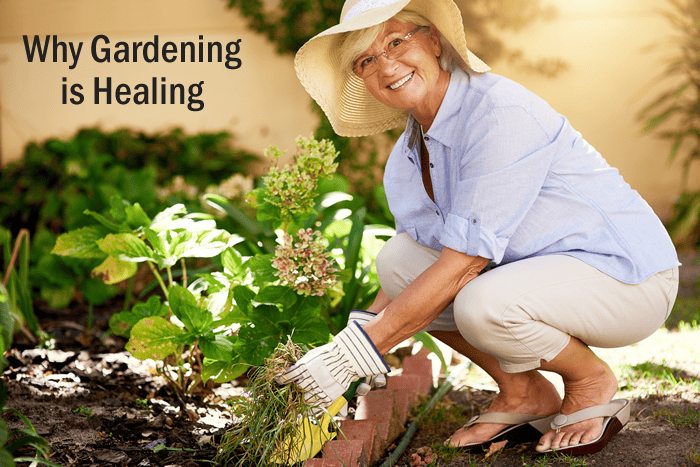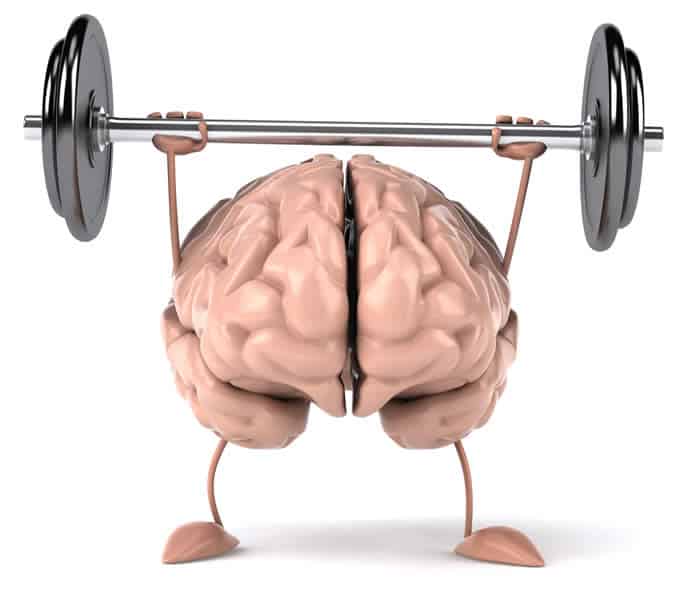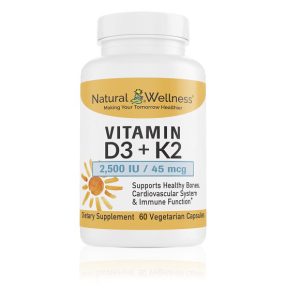

It’s that time of year when people are spending more time in their gardens. Certainly, gardening can help keep your landscape looking nice while also enabling you to grow the produce of your choice. But there are other benefits of gardening as well. It’s also good for your physical and mental health!
Health Benefits of Gardening: 6 Ways Gardening Can Positively Impact Your Health
Gardening offers both mental and physical health benefits, some of which include:
1. Lower levels of stress
Stress negatively impacts all of your body’s systems and can lead to chronic pain, breathing issues, high blood pressure, heart attack, and more. (1) Gardening helps reduce stress levels. For instance, in a study involving veterans in substance abuse treatment, those who engaged in gardening activities reported that they felt “calm,” “serene,” and even “refreshed” both during and after their time in the garden. (2)
2. Increased self-esteem
While you may not associate gardening with self-esteem, research suggests that there is a connection between the two. (3) Furthermore, this benefit can be received from actively gardening or just spending time in a garden (passive gardening).
And garden size doesn’t appear to matter either as people enjoy higher levels of self-esteem whether their garden consists of a few potted plants on their apartment balcony, a courtyard with planter blocks, or a large plot of land behind their home.
3. Greater resilience
When you are resilient, you can better withstand and recover from challenging times. What helps improve your resilience? Gardening.
It’s thought to provide this benefit by reducing your mental fatigue and helping you better cope with psychological stress, both of which improve your ability to get through and bounce back from tough situations you may face. (4)
4. Improved heart health

Studies have found that just viewing plants can reduce your blood pressure and lower your pulse rate. (5) This is important because the number one cause of death in the U.S. is heart disease. (6) So, finding ways to improve heart health can help reduce this public health issue—and potentially help you avoid a heart attack or stroke.
5. Better recovery from surgery
If you have a surgical procedure coming up, research suggests that simply being in a natural environment such as a garden can provide several benefits. Among them are reducing the amount of drugs you need to ease the pain while also decreasing your anxiety related to the procedure, lowering your risk of post-surgical complications, and decreasing the length of your hospital stay. (5)
6. Higher vitamin D levels
Vitamin D is important for bone, nerve, and muscle health. One way to increase your vitamin D levels is to spend time in the sun. (7)
Because spending too much time in the sun can raise your risk of skin cancer, limiting your exposure to 15 minutes or less per day is recommended. If you’re gardening for longer, cover up and wear sunscreen.
What Does Gardening Do to the Brain?

Interestingly, gardening can also improve cognitive functions due to its impact on the brain. One study found that, after engaging in gardening activities such as planting, raking, and watering plants, participants had significantly increased brain nerve growth. This can help improve brain function while also improving memory. (8)
Why Gardening Is Healing
If you’ve ever spent time gardening, you may notice that you feel better mentally after engaging in this activity. But why is gardening healing?
The answer lies in many of the health benefits associated with this activity, including reduced stress, greater well-being, and higher levels of hopefulness, along with relief from some health symptoms.
Plus, spending time in nature is a good distraction from what is bothering you while also offering psychological comfort. (9)
Is Gardening Good for the Immune System?
Yes! Gardening is great for the immune system. Research has found that engaging in gardening can reduce the inflammatory markers in the blood and decrease oxidative stress. (10) Both of these effects go a long way in boosting immunity. Vitamin D also plays a role in immune system function, so gardening in the sun also enhances this effect.
If you’re looking for a supplement to help increase your vitamin D levels, Natural Wellness offers Vitamin D3 + K2. Taking vitamin K with vitamin D can help improve bone tissue metabolism, reducing your risk of bone breaks and fractures. (11)





